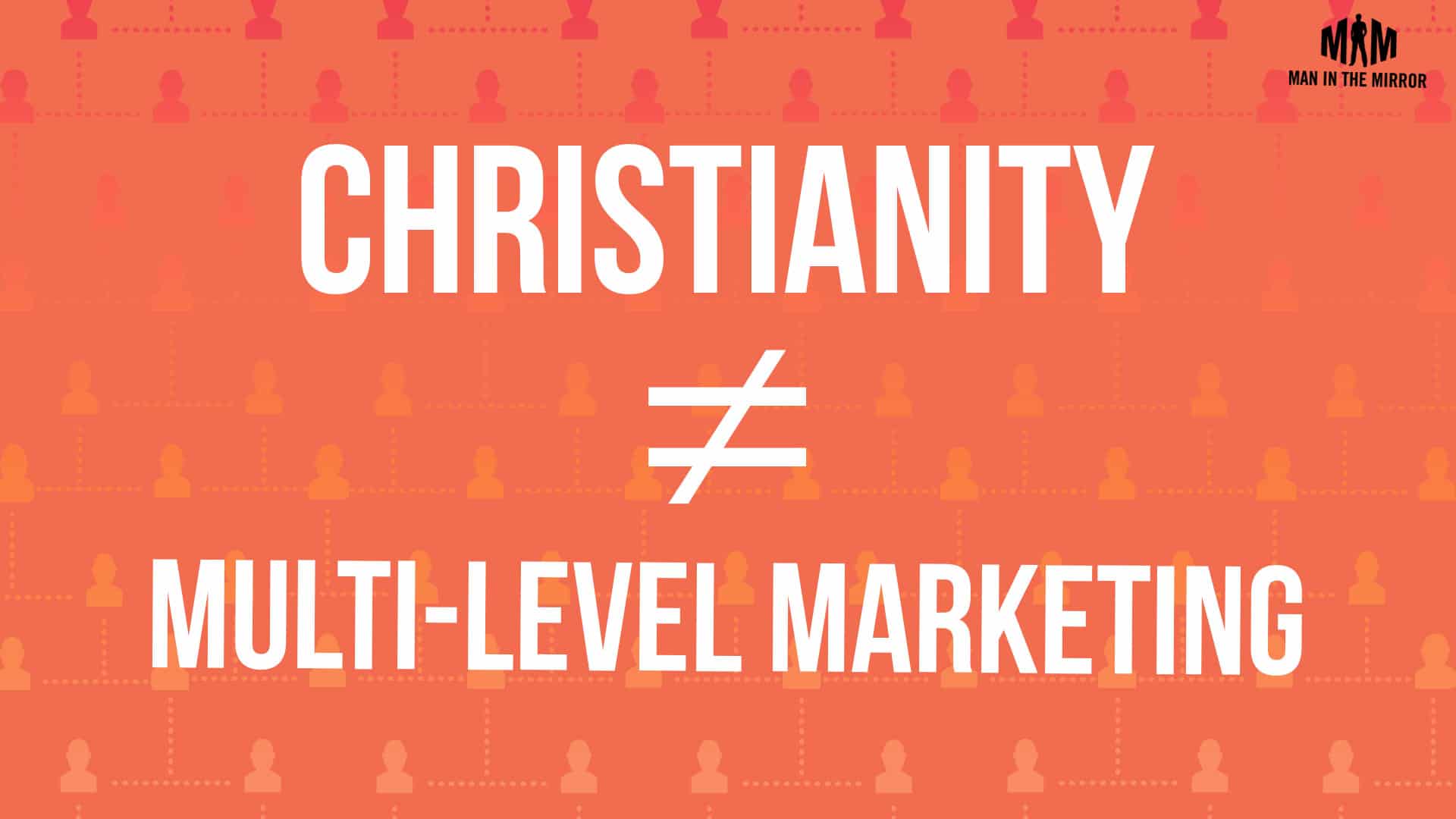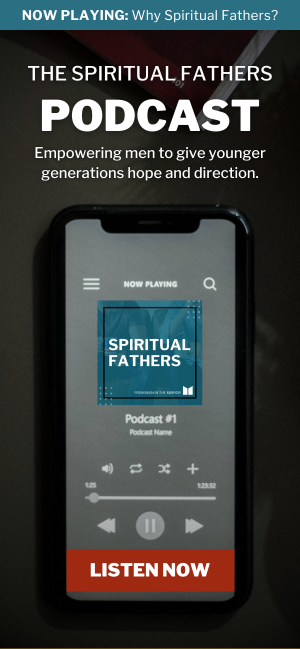Exploring the Great Commission
Is the primary purpose of the Christian life to make disciples who make disciples? This week, we’re going beyond the numbers with the Great Commission to explore the deeper implications of Jesus’ teaching on discipleship and the gospel.

By Brett Clemmer
President & CEO
Casselberry, FL
One of the most famous speeches ever given is found at the end of Matthew. “Go and make disciples…” it begins, and Christians and churches have been trying to follow this “Great Commission” ever since.
But I’d like to propose that we have gotten a bit off track when it comes to the Great Commission. While it says to go and make disciples, I often hear a greater emphasis on making disciplemakers.
I was talking to my friend and spiritual guide Matt Heard about this very topic, and he said something that really stuck with me: “If the purpose of making disciples is purely so that those disciples will make more disciples who then make more disciples, that’s not the gospel; that’s multi-level marketing.”
That phrase—when Matt used it—stuck with me in the days that followed. I thought about it in relation to my personal calling but also the mission of Man in the Mirror. Is the purpose of the Christian life primarily to make more disciple-makers? Have I been so caught up in reproduction that I haven’t been thinking about what it is exactly that we are reproducing?
No, the implications of the gospel of Jesus Christ run far too deep to reduce it to a means of production and multiplication. How can we stay on track then? And how might we be cheating men if we fail to make this distinction?
At Man in the Mirror, we believe wholeheartedly that we are called to make disciples—that it is core to the teachings of Jesus. But what might we, as disciples of Christ, be missing in it?
Famous Last Words: The Great Commission
The Great Commission is found in the last three verses of the book of Matthew. There’s something to the fact that the Holy Spirit inspired Matthew to make these Jesus’ last words in his telling of Jesus’ story. It’s an emphasis that isn’t lost on Bible teachers. Here are those “last words” of Jesus (Matthew 28:18-20, NIV):
Then Jesus came to them and said, “All authority in heaven and on earth has been given to me. Therefore go and make disciples of all nations, baptizing them in the name of the Father and of the Son and of the Holy Spirit, and teaching them to obey everything I have commanded you. And surely I am with you always, to the very end of the age.”
This may be the best known speech in history. Just consider all the things that have taken place—all that Christians have done—because Jesus said, “Go and make disciples.”
When we break down the Great Commission phrase by phrase, we see how deeply layered it is.
“Go and make disciples of all nations”
The word “Go” here is actually more like, “As you are going.” As you are going, make disciples.
In other words, it’s not one of the many things on our to-do lists—get my annual physical, pay the utility bill, make disciples.
It’s the thing that happens alongside all the other things. As you are going. It’s a lifestyle and an identity more than it’s an independent action.
In every area of your life that you’re engaged in, be making disciples as you go.
Making disciples isn't one of the many things on our to-do lists; it's THE thing that happens alongside all the other things. Click To Tweet“Baptizing them in the name of the Father and of the Son and of the Holy Spirit”
Baptism is the sign of the covenant for those who believe, replacing the sign of circumcision. When someone is baptized, they are saying publicly, “I believe. I’m part of the family. I belong to Christ.” So we want to help bring people to this place of faith.
In whose name? In the name of the Father and of the Son and of the Holy Spirit. What a theologically rich statement! Jesus is revealing that the Trinity is the very basis for belief. There’s the Father who loves us, the sovereign Lord over everything; the Son, Jesus, who came and walked among us and whose death and resurrection redeems us; and the Spirit who lives in our hearts today, giving us counsel, wisdom, and understanding. In the Trinity, we find a comprehensive view of what it means to follow God.
“Teaching them to obey everything I have commanded you”
This next thing Jesus includes is the idea of spiritual growth, not just spiritual knowledge.
He doesn’t say, “Teach them what I have commanded you.” He says, “Teach them to obey what I have commanded you.”
It’s learning, yes, but it’s much more than that. It’s living. It’s living it out.
“All authority in heaven and on earth has been given to me… And surely I am with you always.”
By whose authority are the disciples going to do all of this? Jesus brackets his charge with the answer: His authority.
The same is true for us. When it comes to making disciples, whose authority do you have? Your church’s authority? The man who led you to Christ’s authority? Your mentor’s authority? No. The only authority that you have is also the only authority you need. It’s the authority of Jesus, who received it from the Father. And He is with you always.
An important note of caution here for leaders: Nobody takes authority, not even Jesus. You’re only given authority. In my role at Man in the Mirror, my title may indicate that I have authority, but I was given that authority by the board of directors, and they are also able to take it away.
We’ve all seen pastors and other leaders in the church crash and burn—abuse of power, misuse of funds, poor leadership, or other moral failings. Oftentimes, one of the first things that went wrong was that they believed they were operating under their own authority. And eventually God said, “I don’t think so, buddy.” Wherever you’ve been given authority—at work, at church, at home, or elsewhere—it’s your responsibility to exert it correctly and justly in a manner worthy of your calling from God, the ultimate source of authority.
To recap, the Great Commission isn’t a project plan checklist or growth strategy. It happens as you are going. It’s everything you’re doing in every area that you have an opportunity. It’s your identity as a disciple. You’re helping bring people to faith in Christ, baptizing them in the name of the Father and of the Son and the Holy Spirit. You’re teaching them how to live that faith out. And the authority that you have as a Christian is the authority of Christ.
The True Purpose of a Disciple Maker
The Great Commission makes it clear that we are called to make disciples—each one of us who believes and follows Christ. But there is a nuanced difference in how we see and understand that purpose that has radical implications for our lives and for the Kingdom.
Here it is: The Great Commission is about making disciples who are disciples, not who make disciples.
If we’re focused on making disciples who make disciples—versus making disciples who live as disciples —we’re saying that the most important thing about our lives as a disciple of Jesus is that we make other disciples. But that’s not the gospel.
Of course, we want churches to grow, but church growth is not the purpose. Building God’s Kingdom is the purpose. And God’s Kingdom is not built by merely increasing the number of people. It’s built by increasing the depth of belief within His people.
Which leads to the foundation of this commissioning we’ve received—to make disciples who live as disciples, we must be disciples who live as disciples.
God's Kingdom is not built by merely increasing the number of people. It's built by increasing the depth of belief within His people.Click To TweetLiving as Disciples
The danger in being focused on getting more people rather than helping people grow deeper and deeper in their faith is that we create shallow Christians who can’t stand up to the heat. And the heat comes.
John 10:10 says, “The thief comes only to steal, kill, and destroy. I came that you might have life and have it abundantly.”
Now notice in this verse, Jesus doesn’t say, “The thief comes only to steal, kill, and destroy. I came that you might make disciples—or grow your church or increase your influence. ” (He says the opposite, in fact. He says, “The way is narrow.”)
John writes at the end of John 20, “These things are written so that you may believe that Jesus is the Christ, the Son of God, and that by believing you may have life in his name” (verse 31). He doesn’t write that it’s so “that by believing, you may go create disciples.”
He wants to bring us abundant life. The life of a disciple is an abundant life.
The truth is that focusing on numbers may also create a shallow faith in you. But instead, if your goal is to help men grow deeper in their faith alongside you and others, that’s going to attract people to the gospel naturally.
We don’t want to be men who lose our first love (Revelation 2:4), living out a shallow faith focused on the wrong goals. We want to be men who love Jesus and exhibit that to the men around us—a way of life that makes disciples as we are going.
We want to be men who love Jesus and exhibit that to the men around us—a way of life that makes disciples as we are going.Click To TweetWhat Does It Take to Make Disciples?
The Great Commission is for all of us. If you’re a Christian, you’re supposed to make disciples.
Far from an obligation though, making disciples is a sacred privilege. We get to make disciples! It’s our as-we-are-going identity and calling.
So how do we do it? I want to give you four quick thoughts on disciple making, based on what we see through Scripture in the life of Jesus.
- It takes time. In the years when Jesus lived, rabbis would walk from town to town, teaching in the synagogues. As they went, the guys who followed them around—their disciples—spent time discussing the Scriptures and figuring out how to apply it. They lived life together. If you are going to disciple someone “as you are going,” it will be helpful to include them in as many activities as possible. Look for opportunities to include them in your everyday life.
- It takes modeling. What did Jesus say to the disciples when he invited them to become his disciples? “Come, follow me” (Matthew 4:19) If you want to make a disciple, you must be willing to authentically model the life of a follower of Christ. Ask yourself: if someone were to start following you today, where would they end up? Let this question motivate you toward—not discourage you from—the Great Commission.
- It takes sacrifice. Jesus said, “Let him deny himself, and take up his cross, and follow me” (Matthew 16:24). To spend time with someone, building a relationship and modeling the life of a disciple, it will require you to sacrifice things. It may be a hobby that you do on your own, a routine comfort, a habit that pulls you away from Christ, or even another relationship with someone who doesn’t desire to grow in his faith. What are you willing to sacrifice?
- It takes love. Jesus said, “By this everyone will know that you are my disciples, if you love one another” (John 13:35). This isn’t where you shake someone’s hand on Sunday morning or give them a little card of encouragement. It’s deeper than that. It’s saying, “We’re in this thing together. We’ve got each other’s backs. We will laugh with each other, cry with each other, and call each other out when needed. We’re going to protect and compel each other to live abundant lives as we follow Christ together.” It’s “a friend who sticks closer than a brother” (Proverbs 18:24b).
This is what the Great Commission is all about. We want to live as followers of Christ so that we get to make disciples—not as a numbers game or obligation, but as a natural byproduct of our relationship with God and others.
We want to have hearts so devoted to Him that it’s easy to give up our time, model a life worth imitating, make sacrifices, and love extravagantly—to bring others into the rich, abundant life they have in Christ.
As you are going, make disciples.
THE BIG IDEA: The Great Commission is about living as followers of Christ so that we get to make disciples—not as a numbers game or obligation, but as a natural byproduct of our relationship with God and others.
♦♦♦







